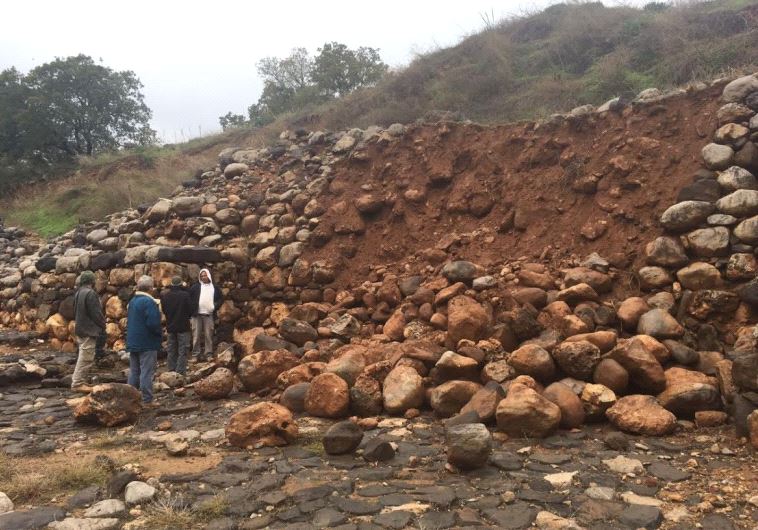Stone wall from First Temple period destroyed by rains in Israel
"It is sad and unfortunate to see such damage by forces of nature to unique and very important treasures of history and heritage."
 Stone wall from First Temple period destroyed by rains(photo credit: TZVIKA ZUK)Updated:
Stone wall from First Temple period destroyed by rains(photo credit: TZVIKA ZUK)Updated: